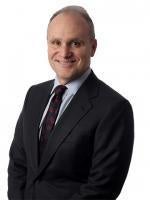Continuing the recent trend, New York State has again enacted changes to New York’s election and government ethics laws in order to “restore public trust” in government. These “reforms,” which are likely to affect advocacy organizations, public officials, candidates, committees, and other individuals and entities involved in the New York political process, include:
-
creating two new divisions within the New York State Board of Elections -- an independent enforcement unit, led by a non-partisan, Chief Enforcement Counsel, and a separate division solely tasked with ensuring that regulated entities comply with the law;
-
codifying requirements regarding the registration of independent expenditure committees and increasing the frequency of when such entities will be required to disclose the contributions received and the expenditures made;
-
establishing a pilot public financing program that would provide matching funds for participating candidates running for State Comptroller; and
-
adopting the “Public Trust Act,” creating a series of new crimes for violating the public trust and new penalties for the public officials who commit these crimes and again expanding the disclosure obligation for certain public officials who receive outside income.
Contemporaneous with the enactment of these reforms, the Governor agreed to end the Commission to Investigate Public Corruption (“Moreland Commission”). (See our prior alert titled, “New York State Governor Establishes Commission to Investigate Public Corruption." Although these new laws are described as improvements to New York’s ethics and campaign laws, several prominent individuals have strongly criticized the changes. The State Comptroller has identified what his office believes to be flaws in the pilot campaign finance program, and has opted out of participating. Additionally, the U.S. Attorney for the Southern District of New York has criticized the dissolution of the Moreland Commission and, according to published reports, is continuing at least some of the investigations begun by the Moreland Commission. Thus, it is currently unclear how significantly these changes will impact government and politics in New York State. Nevertheless, individuals and entities involved in New York State political activities must be aware of these changes to ensure compliance with the new laws.
Enforcement vs. Compliance: New Units at NYSBOE
For years, good government groups have criticized the New York State Board of Elections (“NYSBOE” or “the Board”) as being overly partisan and too lax in enforcement. This concern was echoed during hearings conducted by the Moreland Commission. In fact, the Moreland Commission’s December 2013 report ultimately stated that the NYSBOE “lacks the structural independence, the resources, and the will to enforce election and campaign finance laws.” Therefore, the Commission recommended that New York create “independent election and campaign finance law enforcement agency, headed by a director appointed to a fixed, five-year term by the Governor with Senate confirmation, and removable only for cause.” Generally adopting this recommendation, the newly enacted law requires the Board to establish, effective July 2014, a new Division of Election Law Enforcement (“DELE”) as well as a new “Compliance Unit” to be created within the NYSBOE.
The Compliance Unit is generally tasked with reviewing campaign finance statements filed with the Board to determine whether filers are meeting their obligations under Article 14 of the Election Law. To the extent that reports are deficient, the Unit is to notify the filer. If the filer fails to cure the deficiency within 30 days of being notified, the matter shall be referred to a hearing officer. There are no statutory proscriptions as to who shall staff this Unit.
In contrast, the DELE will be headed by an independent chief enforcement counsel (“the Counsel”) who is to be selected, and shall make personnel decisions, without considering political affiliation. The Counsel will be appointed by the Governor for a fixed five year term, and must be confirmed by majority vote of each house of the legislature. It is expected that the Counsel will be nominated and confirmed before the legislature ends its regular session in late June.
The Counsel is empowered and granted the sole authority within the NYSBOE to “investigate on his or her own initiative or upon complaint alleged violations of” the Election Law. To the extent that the Board receives complaints, they shall be forwarded to the DELE for the Counsel to review. The Counsel shall determine whether an investigation is warranted. In deciding whether to proceed with an investigation the counsel is to consider whether – assuming the allegations to be true – there would be a violation of the Election Law, and whether there appears to be credible evidence to support the allegations. If the enforcement counsel determines that the allegations are not supported by credible evidence, the counsel shall notify the Board that the complaint has been dismissed and send a letter notifying the complainant of the same.
There is no requirement that the Board’s Commissioners approve a decision to open an investigation, however, the Counsel must obtain Board approval to “administer oaths or affirmations, subpoena witnesses, compel their attendance, examine them under oath or affirmation, and require the production” of relevant records, as well as, if appropriate, provide immunity for certain individuals. The Commissioners are required to vote to grant or deny the Counsel this authority within 20 days of the counsel making a request. Should the Commissioners fail to take a vote within 20 days, the Counsel shall be deemed to have the authority.
Where the Counsel believes that there is a reasonable basis for a criminal prosecution, the Counsel shall present the findings to the Commissioners. The Board then has 30 days to vote on whether to accept or reject the findings. If the Board accepts the findings, or if the Board fails to take a vote, the Counsel shall promptly refer the violations to the Attorney General or a local district attorney.
Where there is an alleged violation that “does not otherwise warrant criminal prosecution,” or there has been a finding by the Compliance Unit that a filer has failed to complete his or her obligations, a proceeding shall be conducted before a hearing officer. The Counsel shall provide the hearing officer with a written report stating whether: (1) there is a substantial reason to believe that there was a violation of the Election Law, and what penalties are appropriate; (2) “the matter should be resolved extra-judicially;” and (3) the Board should bring a special proceeding “in the supreme court to recover a civil penalty.” The hearing officer shall review the facts and the law to determine whether, based upon a preponderance of the evidence, the filer has violated the Election Law or if the complaint should be dismissed. The Counsel shall ultimately adopt the hearing officer’s findings, but has the discretion to bring a special proceeding if the hearing officer determines that the facts support such a proceeding.
Increased Disclosure of Political Activity
In addition to establishing new processes at the Board, the Election Law was amended to create new obligations for certain individuals and entities involved in the political process. Most notable is the creation of a new section in the Election Law entitled “Independent expenditure reporting,” which relates to entities that do not coordinate with any candidate, but nevertheless seek to influence the election or defeat of a candidate. Specifically, this section clarifies what types of communications by such entities shall be deemed independent expenditures that trigger registration and disclosure obligations.
NYSBOE regulations, promulgated in 2012, clarified that entities that raise and expend money on independent expenditures to “expressly advocate[] for the election or defeat of a candidate” in New York must register with the Board, and regularly disclose information regarding the entity’s donors and expenditures. The Board, however, used the standard established in the U.S. Supreme Court case Buckley v. Valeo to define express advocacy as any communication using words “such as vote, oppose, support, elect, defeat, or reject, which call for the election or defeat of a candidate.” In the summer of 2013, the Board issued an opinion slightly expanding this definition to include ‘“[w]ords such as “Prefer” or “Endorse” [as] . . . express words within the definition of Express Advocacy.”’ The new law, however, provides new meanings of the term “independent expenditure” and creates new obligations for individuals and entities that make these expenditures, likely invalidating the 2012 regulations.
Beginning in June 2014, independent expenditure (“IE”) will mean any communication made to at least 500 members of a “general public audience” that contain words “such as” the Buckley “magic words” described above or which “refers to and advocates for or against a clearly identified candidate or ballot proposal” during the year in which such candidate is seeking office or the proposal is on the ballot, regardless of whether the communication is by:
-
an audio or video communication via broadcast, cable or satellite;
-
written communication via advertisements, pamphlets, circulars, flyers, brochures, letterheads; or
-
other published statements
Notwithstanding the foregoing, an expenditure is not considered to be an IE if it is:
-
an article, commentary, editorial, or other news story “distributed through . . . any broadcasting station, cable or satellite,” provided that neither the publication nor the facility are controlled by a political party, committee, or candidate;
-
part of a candidate debate or forum;
-
an internal communication by members to other members of an organization, provided that the communication is made to 500 or less individuals; or
-
a communication published on the Internet, provided that the communication is not a paid advertisement.
Any individual or entity that intends to make independent expenditures, regardless of the cost, must register with the NYSBOE as a political committee, and then file all relevant disclosure reports. Once registered, in addition to the regular disclosure reports, independent expenditure committees (“IEC”) may be subject to weekly disclosure obligations. IECs that receive a contribution in excess of $1,000 from any one donor must disclose that contribution on a weekly report, to be filed on the Friday following the receipt. Similarly, the IEC must file a weekly report whenever it expends more than $5,000. During the 30 days prior to an election, however, the IEC must report such contributions and expenditures within 24 hours. A knowing and willful failure to comply with these filing obligations may result in a civil penalty equal to the greater of $5,000 or the cost of the communication.
Whenever an IE costs more than $1,000 in the aggregate, the communication must include certain disclaimers. The materials “shall clearly state the name of the person who paid for, or otherwise published or distributed the communication and state . . . that the communication was not expressly authorized or requested by any candidate,” such candidate’s political committee, or agents. Failing to include this disclaimer, or including false information, may result in a civil penalty not to exceed to the greater of $1,000 or the cost of the communication. The NYSBOE is expected to issue regulations to implement these new IE requirements in early summer.
The law was also amended to expand a disclosure requirement already imposed on all political committees, including candidate committees and IECs. These entities have historically been required to provide copies of certain campaign materials to the NYSBOE. The amended Election Law broadens the list of materials that committees must provide. Effective June 1, 2014, committees will be required to also provide copies of information disseminated by computer or other electronic device, including text messages and emails, if the communication was disseminated to 500 or more members of the general public.
Public Financing of Campaigns -- Demonstration Program
Modeled after a combination of the New York City campaign finance program and a long standing bill authored by the Comptroller, the new law created a demonstration small donor matching program. Just for the State comptroller’s race, and just for the upcoming election, candidates for comptroller who meet certain thresholds, may receive up to $4 million in matching funds from the State, for both the primary and the general election. Participating candidates, however, must agree to comply with lower contribution limits, to use the matching funds only for certain “qualified expenditures,” to comply with certain expenditure restrictions, and to participate in at least one Board sponsored debate.
Before becoming eligible for matching funds, a comptroller candidate must raise at least $200,000 in “matchable contributions;” at least two thousand of such contributions must be from New York State residents and be in an amount in between $10 and $175. Additionally, the candidate must be on the ballot and have an opponent.
Once deemed eligible, the candidate will receive $6 of matching funds for every $1 of matchable contributions received, up to the first $175 from each eligible contributor. Matchable contributions are contributions from natural persons over the age of 18, other than registered lobbyists, who are residents of the State, reported to the NYSBOE, and received by the candidate prior to the relevant election day. Regardless of whether the contribution is deemed to be matchable, it must be within the new lower limit of $6,000. The new law also provides that if a candidate for comptroller had raised more than this amount prior to becoming a participating candidate, the candidate must either place the excess amount in a separate account that cannot be used for the 2014 election, or refund that amount.
The Board is tasked with auditing participating candidates to ensure matching fund eligibility. Participants who fail to comply with the new public matching laws may be subject to civil penalties and potentially criminal prosecution.
The Board is also required to prepare a report to the Governor and legislative leaders summarizing the efficacy of this demonstration program, including the effect this program had “on the sources and amounts of contributions, campaign expenditures, voter participation, the number of candidates, the candidates’ ability to campaign effectively . . . and the diversity of candidates.” Furthermore, the report must include recommendations for amendments to the program. As noted above, although the election season has barely started, and this report is a long time away from being issued, many good government groups are already branding this program as a failure, and there is a push to adopt a more comprehensive program before the end of this legislative season.
The Public Trust Act
The Governor first proposed a version of the Public Trust Act (“PTA”) in 2013. In fact, at the time, the Governor pointed to the legislature’s inaction on this proposal as one of the major reasons that he formed the Moreland Commission. Although revised, the PTA was enacted last month.
Among other things, the PTA creates a new title of the Penal Law: “Corrupting the Government.” As a general matter, this new crime makes it explicitly illegal for a public servant, or someone acting in concert with a public official, to engage in a plan of “systematic ongoing course of conduct with the intent to defraud the state or one or more governmental instrumentalities within the state” for the purpose of obtaining property or services from the government by “false or fraudulent pretenses, representations or promises.” Depending on the value of the services or property obtained, the crime increases from a class E felony (no specified value) to a class B felony (value is in excess of $100,000).
The Act also establishes the crimes of “public corruption” and “corrupt use of position or authority.” Public corruption occurs when an individual uses his or her public office to commit certain crimes (e.g. larceny or scheme to defraud), and the crime involves the taking of government property. Corrupt use of position or authority involves, among other things: (i) a state or local officer, nominee, or candidate using the position to inappropriately provide an employment or government appointment to another individual; (ii) a state or local officer or employee threatening reprisal for another public officer or employee, if he or she fails to agree to vote or take certain political actions; (iii) an individual attempting to “buy” a nomination or appointment; or (iv) an individual making a gift or promise of a gift in exchange for appointment or election to a government position, or for an increase in government salary.
In addition to any other penalty that would be imposed, individuals who are convicted of the aforementioned crimes would be barred from subsequently holding public office, working as a lobbyist, holding state contracts, or availing themselves of certain tax credits.
Finally, the PTA adds a new question to the financial disclosure form that would require public officials who have outside employment to disclose information pertaining to any income derived from business referred to them by registered lobbyists.
Conclusion
New York’s political laws are complex, and these recent amendments will create increased compliance risks for advocacy organizations, political candidates and committees, and government officials, alike. Greenberg Traurig’s Government Law Compliance Practice is available to assist with questions regarding New York City and New York State’s Election Law and government ethics laws. GT has a broad range of experience in New York City and State, and provides advice to some of the world’s leading corporations, lobbying firms, public officials, candidates, advocacy organizations, and others who seek to navigate New York’s complex political law compliance requirements.




 />i
/>i

